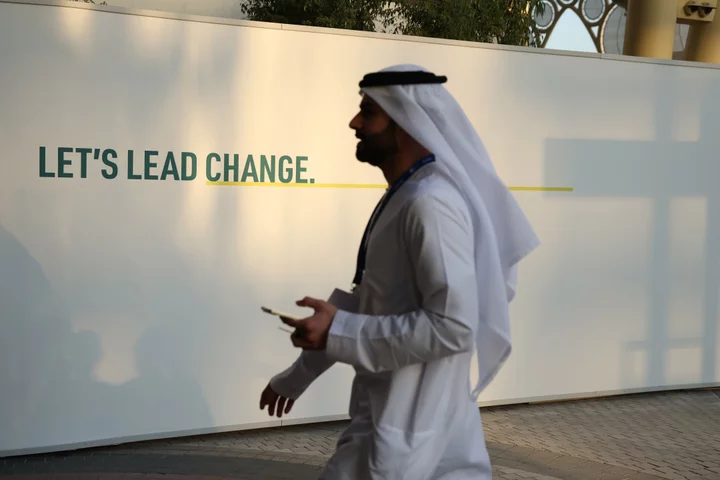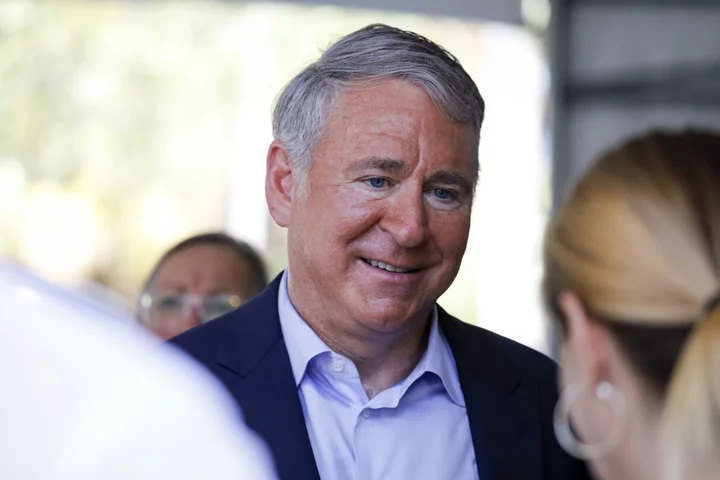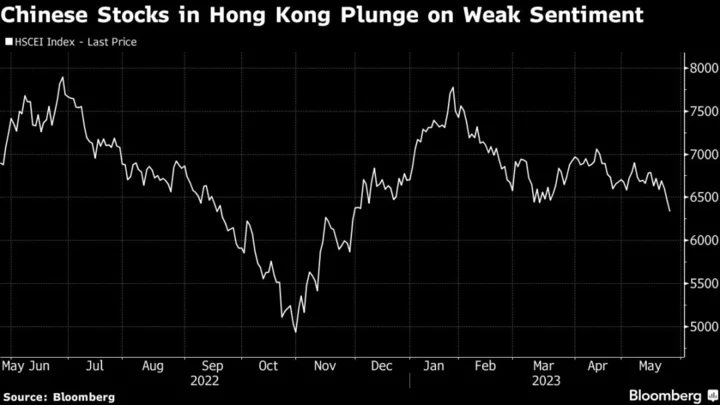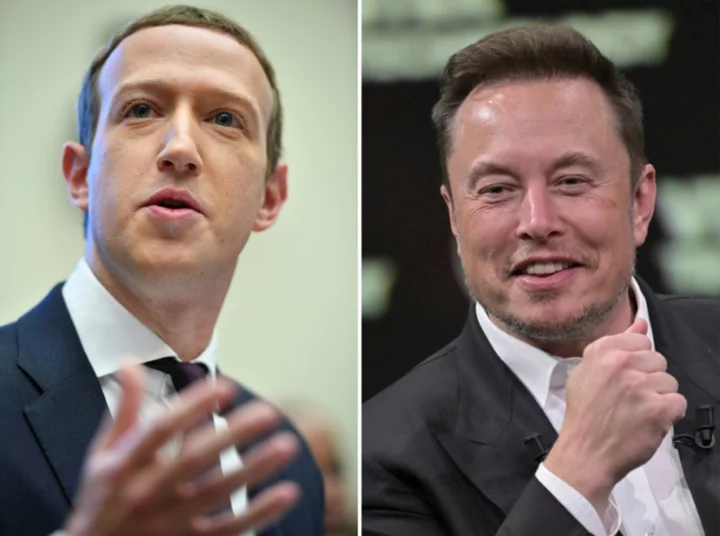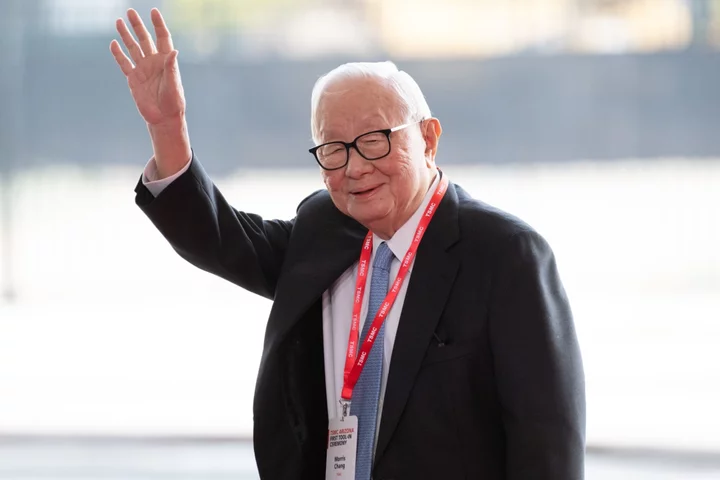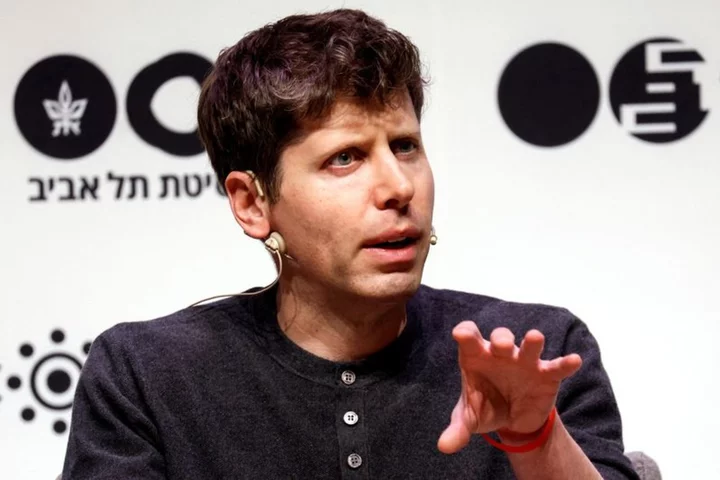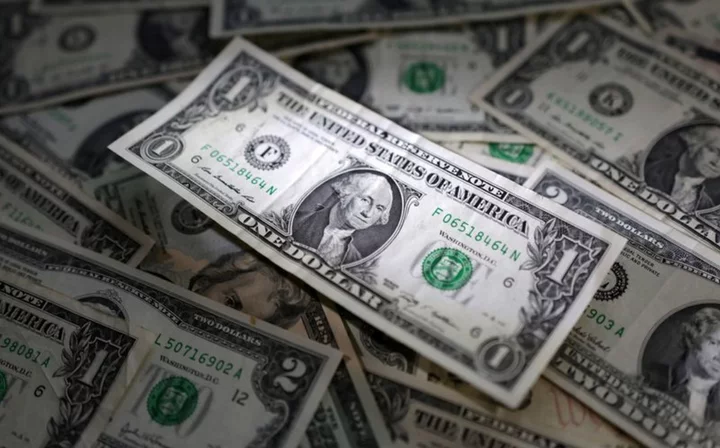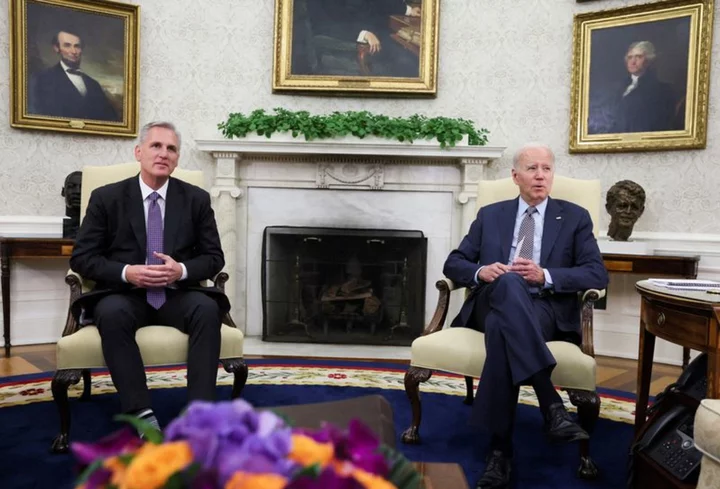Sign up for the Green Daily newsletter for comprehensive coverage of the climate summit right in your inbox.
COP28 President Sultan Al Jaber launched a pact to cut methane emissions from the oil and gas sector at United Nations climate talks in Dubai on Saturday. Exxon Mobil Corp. and Saudi Arabia’s Aramco are among the 50 producers that have signed up. Another program will support companies that make highly polluting productions whose emissions are hard to cut, such as cement and steel.
Earlier, US Vice President Kamala Harris said we need to “accelerate our investments” to meet an ambitious 1.5C warming target, as she promoted the US’s new $3 billion pledge toward a UN fund meant to help developing countries slash greenhouse gas emissions and adapt to climate change.
Here’s a rundown of developments so far today.
(All times Dubai.)
Heavy Industry Gets Support from UN (4:20 pm)
The Industrial Transition Accelerator aims to “catalyse decarbonization” for energy, industrial, transportation and other polluting companies by supporting projects needed to cut emissions.
Heavy-emitting industries “are currently in transition traps,” said Mark Carney, the UN Secretary-General’s Special Envoy for Climate Action and co-chair of the Glasgow Financial Alliance for Net Zero. “They know what they need to do but struggle to get the investment they need to meaningfully cut emissions.”
Carney announced the launch of ITA with COP28 President Sultan Al Jaber, UN Climate Change Executive Secretary Simon Stiell and Michael R. Bloomberg, the founder of Bloomberg News parent Bloomberg LP, who also serves as UN Secretary-General’s Special Envoy on Climate Ambition and Solutions.
The initiative is backed by $30 million from Bloomberg Philanthropies. Carney, in addition to his role at the UN, is the chair of Bloomberg Inc.
Exxon Among 50 Oil Producers Pledging Emissions Cuts at COP28 (3:47 pm)
Exxon Mobil Corp. and Saudi Arabia’s Aramco, the world’s largest private and state-sector oil companies, led a pledge by 50 oil and gas producers at the COP28 climate summit to cut emissions from their own operations.
The deal will be controversial given none of the companies are agreeing to reduce oil and gas production. But they will pledge to stem releases of methane, one of the most dangerous greenhouse gases, to near zero by 2030 and stop routine flaring of natural gas.
World Needs a Standard for Green Products, China’s Climate Envoy Says (3:00 pm)
China’s climate change envoy, Xie Zhenhua, said there should be a unified standard on what green, low carbon products are to ease trade restrictions between countries. Xie spoke on a trade policy panel hosed by the World Trade Organization in Dubai during the COP28 summit.
The European Union recently introduced a system to put a levy on carbon intensive goods entering the bloc — a move that triggered a hostile reaction from some trading partners, including China.
Xie said developing nations need help participating in the global trade of low carbon products, and proposed richer nations should provide financial and technical supports to improve their capabilities.
Xie also noted that opening up trade can help lower global emissions by increasing availability of cleaner energy supplies. “China has managed to lower the costs of wind power products by 80% and the costs of solar power by 90% in the past years,” he said. “These products could only be circulated in the global market [because of] cooperation among countries.”
US Confirms $3 Billion Contribution for Green Climate Fund (2:27 pm)
US Vice President Kamala Harris reaffirmed the US’s pledge to contribute $3 billion to the Green Climate Fund and said the US is on track to meet President Joe Biden’s goal of delivering $11 billion in climate finance by 2024.
“Our action collectively, or worse, our inaction, will impact billions of people for decades to come,” she said. “Around the world there are those who seek to slow or stop our progress leaders who deny climate science, delay climate action and spread misinformation.”
Harris also cited corporate greenwashing and lobbying for fossil fuel subsidies as roadblocks to progress. “In the face of their resistance, in the context of this moment, we must do more,” she said.
EIB Backs EU Wind Sector with €5 Billion of Guarantees (1:30 pm)
The European Investment Bank plans to unlock the money in tranches, starting with €1.5 billion ($1.63 billion) before the end of the year assuming the program is approved by the institution’s board on Dec. 13, Jean-Christophe Laloux, head of operations at Luxembourg-based EIB, said in an interview.
The counter-guarantees will be in equal partnership with about 10 of Europe’s largest lenders to the sector and directed toward the region’s five main wind turbine manufacturers as well as companies in the supply chain.
IRENA Says Tripling Renewables Globally Is “Done Deal” (12:05 pm)
The director general of the International Renewable Energy Agency said a tripling renewables target is “absolutely” feasible. As of two days ago, 111 countries said they were behind the goal, “so others will join,” Francesco La Camera said in an interview, “I think it’s a done deal, the pledge is there.”
“We need policies that may favor switching the demand from fossil fuel to others and they are not still in place,” he said. “The narrative after COP should be to overcome those barriers for adding more money into renewables.”
Biden Administration Announces New Crackdown on Methane (12:00 pm)
The US will force oil and gas companies to replace leaky equipment and regularly search for escaping methane gas as part of a new effort to crackdown on the greenhouse gas.
The final regulation announced by the US Environmental Protection Agency and Biden administration officials at COP28 comes amid an intensifying global focus on methane. The potent greenhouse gas is at least 80 times more powerful than carbon dioxide in warming the atmosphere during the first two decades after its release.
France Leads Push to Cut Off Private Coal Finance (12:00 pm)
France is leading a push to cut off private finance flowing from banks in Group-of-Seven nations to new coal projects, as developed nations look to further stymie one of the most polluting sources of greenhouse gas emissions.
The Coal Transition Accelerator was launched by France alongside the US, the EU and a number of developing countries like Indonesia and Vietnam, who are members of so-called Just Energy Transition Partnerships that aim to transition economies away from coal.
The initiative is asking the Organisation for Economic Co-operation and Development and the International Energy Agency to establish a “gold standard” to measure and assess climate and financial risks attached to private sector investments in new coal assets — one way to make them more expensive. Meanwhile, the US and six other countries joined the Powering Past Coal alliance to commit to not building new coal plants and to phase out existing ones in order to keep 1.5C in reach.
Brazil Urges More Regulation for Carbon Markets (11:30 am)
The head of Brazil’s development bank said it’s urgent that stronger regulation is applied to carbon markets as the country draws up an ecological transformation plan to protect its environment and create jobs. The strategy is expected to cost as much as $160 billion per year for the next decade. BNDES President Aloizio Mercadante spoke on a panel in Dubai with Finance Minister Fernando Haddad. Haddad reiterated his view that the country has room to cut interest rates next year. Brazil has just assumed the presidency of the G20 and hosts COP in 2025.
Mottley Calls for Long-Term Access to Finance (11:15 am)
Mottley told world leaders that “we need to change our attitude to access to capital.” She said COP28 needs to end with a global methane agreement and progress in unraveling what’s needed for opportunities to increase climate investment in developing countries.
“We need people at the table” including insurance companies, ratings firms and banking regulators, she said.
Read More: A New Era of Climate Diplomacy Puts Women in Charge
Masdar Moves Ahead With Malaysia Clean Energy Plan (10:54 pm)
UAE renewables producer Masdar agreed to move ahead with 10 gigawatts of clean energy projects in Malaysia. The Abu Dhabi-based company signed an initial agreement for about $8 billion in projects in Malaysia in October.
At a ceremony at COP28 Friday, Masdar signed an implementation roadmap with the Malaysian Investment Authority to develop the projects including ground-mounted, floating and rooftop solar facilities. The plans also includes wind power and battery storage.
Macron Says Developing Countries Should Be Able to Invest in Nuclear (10:40 a.m.)
French President Emmanuel Macron said developing countries should be able to invest in nuclear power as part of their green transitions, especially by using small modular reactors. He added that Belgium would host a nuclear summit in March in Brussels alongside the International Atomic Energy Agency.
Macron said that nuclear pledge countries would also work with the IAEA to develop a regulatory framework to help countries deploy nuclear energy in a safe and reliable way, adding that the World Bank was needed to help finance the roll-out.
“This commitment and the goal of tripling nuclear capacity sends a powerful signal to the world,” Macron said. “Nuclear energy is back and it is an indispensable solution to the fight against climate change.”
France has one of the world’s largest nuclear power industries.
African Countries Work to Speed Renewables Deployment (10:36 am)
A group of African countries said it was determined to accelerate the transition to renewable energy through mobilising financing from multilateral organisations.
The countries including Kenya, Ethiopia, Sierra Leone, Rwanda, Namibia and Zimbabwe, supported by allies including the United Arab Emirates, Denmark and Germany, agreed to collaborate on financing and on targeted assistance to promote social and economic benefits while enabling the private sector.
“Confronted by an escalating climate crisis that endangers people, infrastructure, and livelihoods, we recognize the pressing need for immediate and decisive measures to address this global emergency,”according to a statement by the Accelerated Partnership for Renewables in Africa, known as APRA.
US, France Lead Call to Triple Nuclear Capacity by 2050 (9:50 am)
The US led a group of more than 20 countries, including France, the UK and South Korea, in a pledge to triple nuclear energy capacity by the middle of the century. US Special Presidential Climate Envoy John Kerry said the technology is essential to reaching net zero. Kerry argued that there were “trillions of dollars” sitting on the sidelines looking for bankable deals like nuclear.
He also touted small modular reactor technology as the ideal solution to replace coal plants. Critics argue that even though nuclear is emissions free, new nuclear reactors will take too long to come online and be too expensive to be a realistic solution before mid-century.
“We’re not making the argument that this is the sweeping answer to climate change,” Kerry said in his opening remarks at the COP28 summit. “But you can’t get to net zero in 2050 without some nuclear.”
--With assistance from Jennifer A. Dlouhy, Laura Millan, John Fraher and Alfred Cang.

